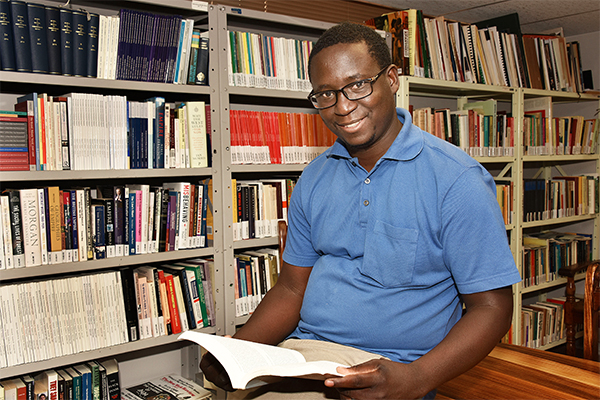Latest News Archive
Please select Category, Year, and then Month to display items
03 March 2021
|
Story Giselle Baillie
|
Photo Supplied
_web.jpg?sfvrsn=987e6620_1) Residence members who led the project, included:
Bohlokwa Rantja, the Residence Prime, and Transformation Committee members Nsuku Mutemela, Ofentse Motlakeng, Phindile Tjale, Madinku Mabala, Mmapopi Motshoso, Karabo Shuping, and Tagane Sekete.
Residence members who led the project, included:
Bohlokwa Rantja, the Residence Prime, and Transformation Committee members Nsuku Mutemela, Ofentse Motlakeng, Phindile Tjale, Madinku Mabala, Mmapopi Motshoso, Karabo Shuping, and Tagane Sekete.
The University of the Free State (UFS) Council approved and adopted Lehakwe House as the new name for the
NJ van der Merwe residence on the Bloemfontein Campus. The approval on 26 November 2020 followed a lengthy process of deliberation, consultation, and public engagement that has taken place since November 2019 and is aligned with the UFS Policy on Naming and Renaming. The name-change process was initiated by the Prime and Transformation Committee of the residence, guided by the
Unit for Institutional Change and Social Justice and supported by a multi-stakeholder committee representative of the residence, the Housing and Residence Affairs Office, the Department of Student Affairs, the Student Representative Council, and alumni.
Lehakwe – a precious gem
Following a lengthy evaluation process of the names submitted through a public voting and recommendation platform in July 2020, ‘Lehakwe’ – a Sesotho word referring to a ‘precious gem’ – emerged as the front runner. As many current and past members of the residence attest, this womxn’s residence has come to occupy a significant space within the hearts and minds of UFS students and the UFS community, given that its spirit has always been closely aligned with the constitutional values of dignity, equality, and freedom and with the human values of ubuntu. In this vein, the new name of ‘Lehakwe’ presents a consolidation of constitutional and university values into the day-to-day thinking, learning, living, and legacy spaces of students, as well as everyone who interacts and engages with the UFS.
Land a fertile field for historians
2017-12-25

Dr Admire Mseba, historian and researcher in the International Studies Group (ISG).
Photo: Charl Devenish
The use of land and the economics of Southern Africa at present is a contentious subject at almost every level of society. A historian and researcher who revels in happenings in these two areas, is Dr Admire Mseba, a postdoctoral research fellow in the International Studies Group (ISG) at the UFS.
Dr Mseba grew up in the Mberengwa region in southern Zimbabwe, known for cattle farming and mineral mining. While at the University of Zimbabwe, he became interested in economic history and archaeology, and completed his PhD at the University of Iowa in the USA. During his time there, Dr Mseba also became passionate about environmental history.
A historian's ability to think and engage critically on diverse subjects drew Dr Mseba to his field. Currently, he is busy with three research projects. Firstly, he is working on a book on social relations, about access to land in Zimbabwe. He is also examining regional and national efforts to control migratory pests during the 20th century, in particular, the red locust. In collaboration with a colleague at the ISG, Dr Mseba is also researching monetary systems in central Africa, covering the present-day countries of Zimbabwe, Malawi, and Zambia.
Dr Mseba believes future research opportunities in the domains of economic and environmental history abound. For one, the land question has been very topical in Zimbabwe for more than a decade—as it is now in South Africa—and needs more scrutiny. Regarding agrarian pestilences, he indicates the recent phenomenon of armyworm invasion. “There are so many opportunities for historians to investigate. There are so many ways to think about these things and trying to put it in perspective.”